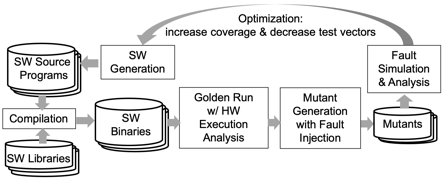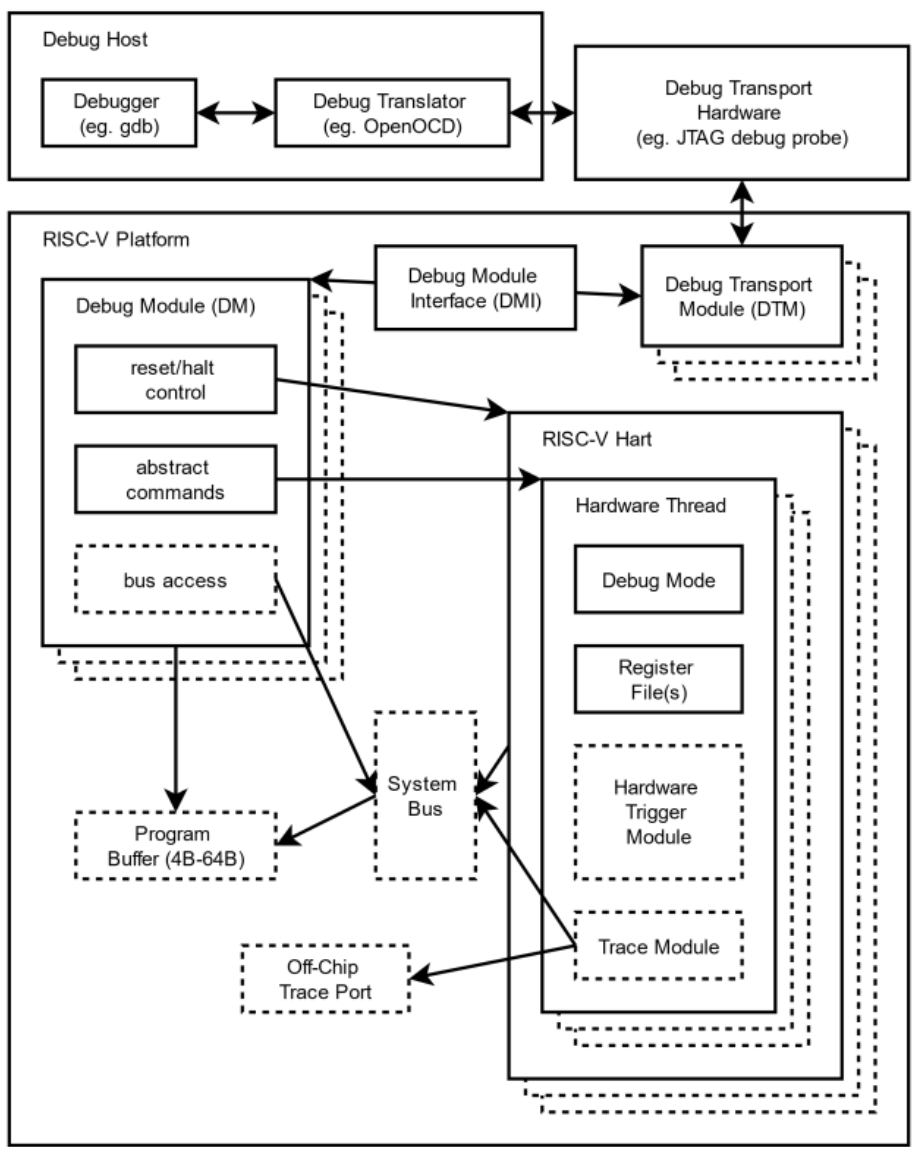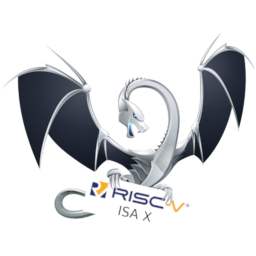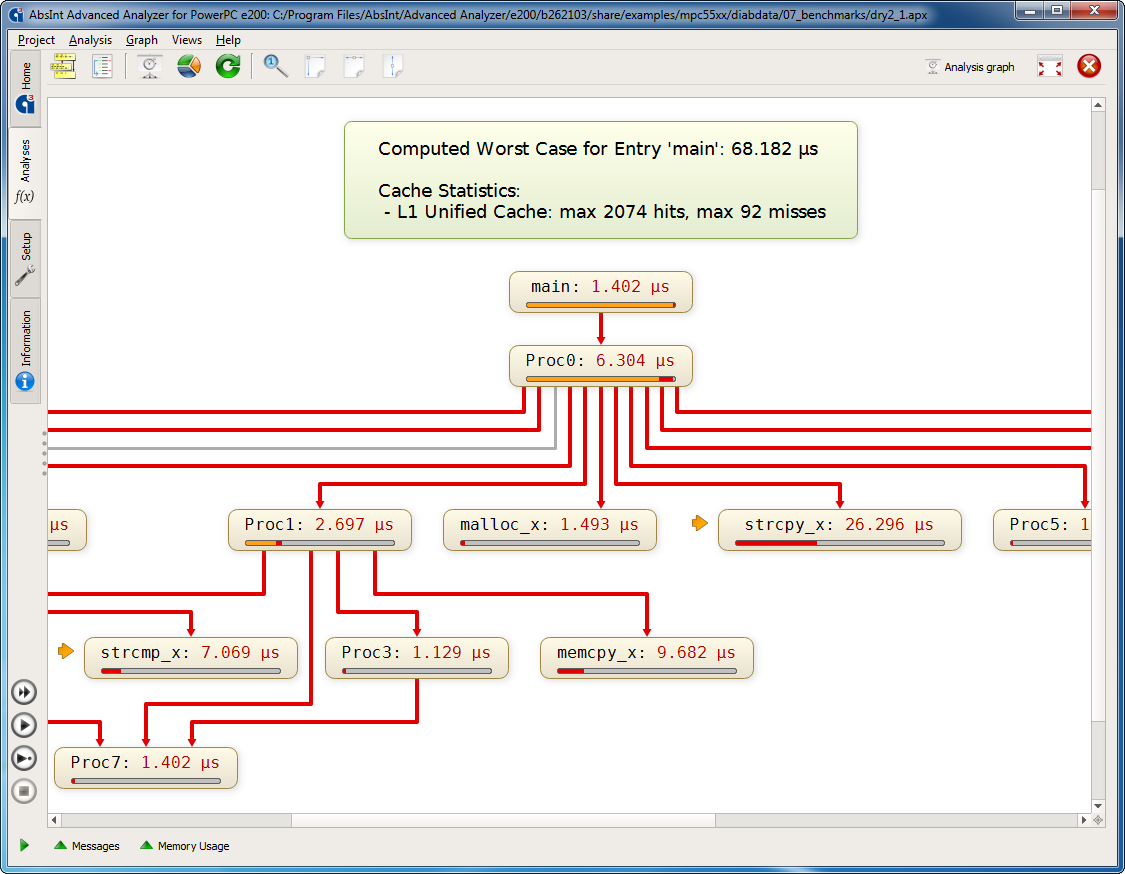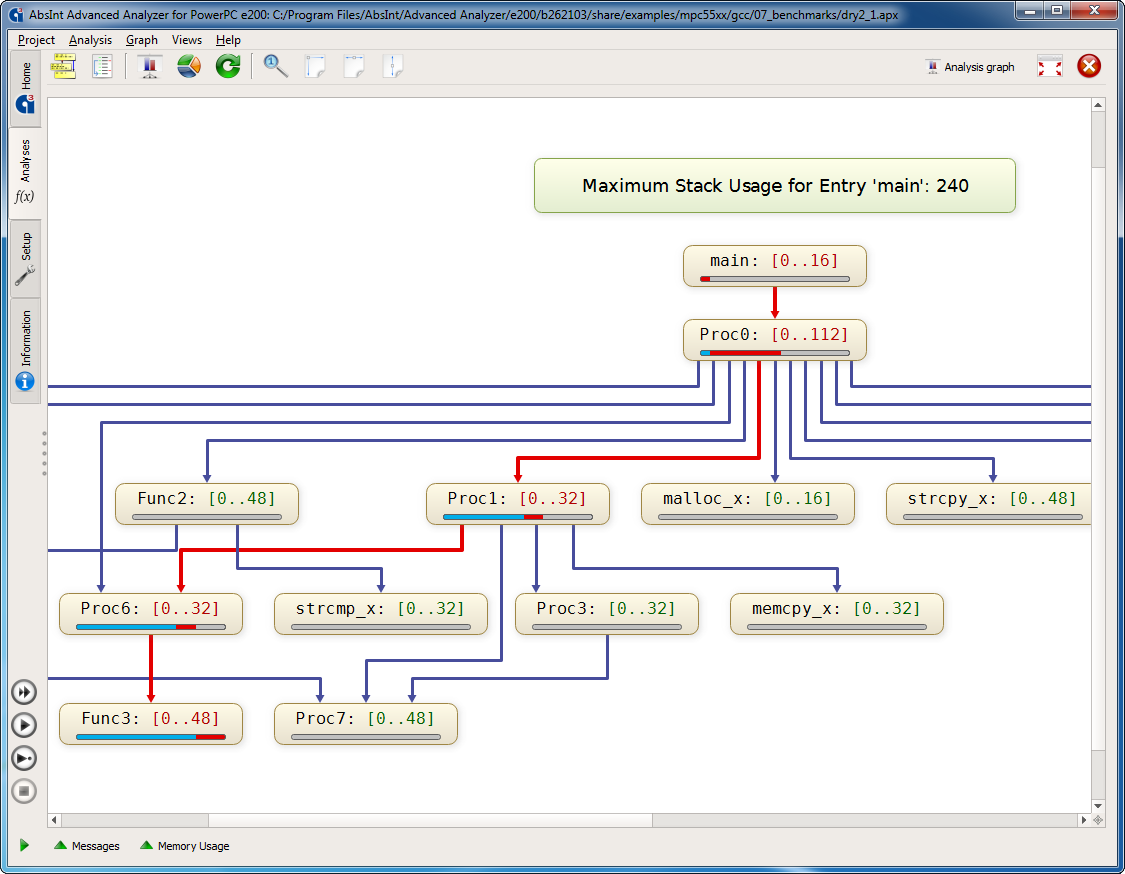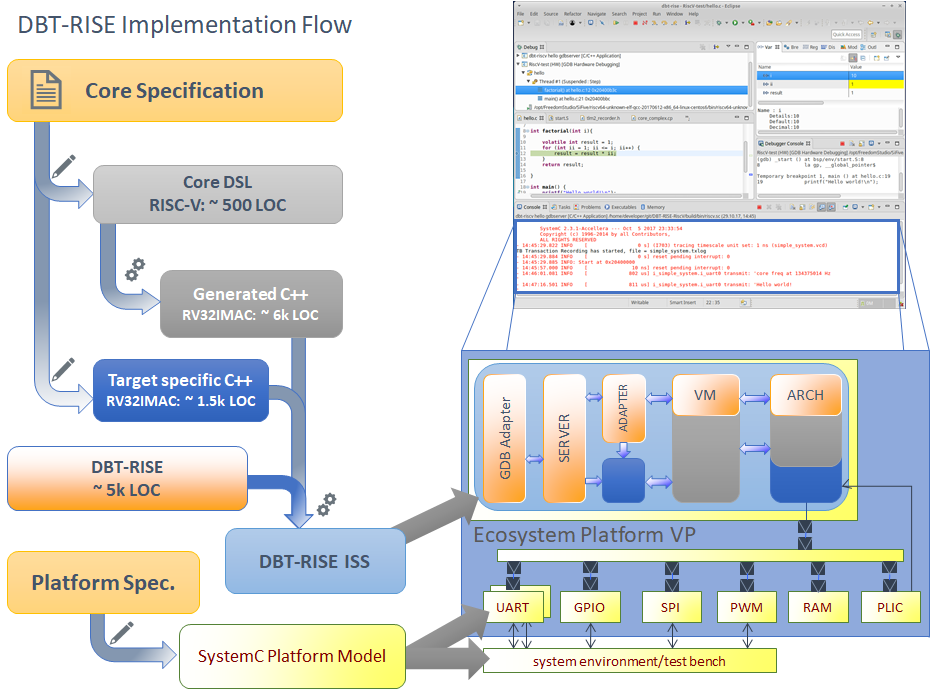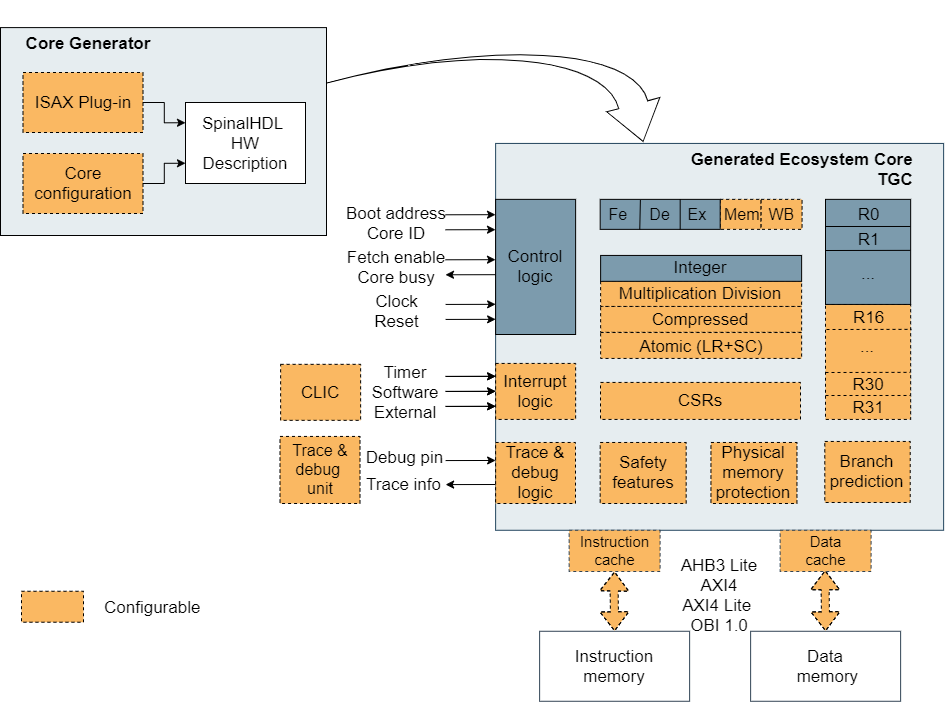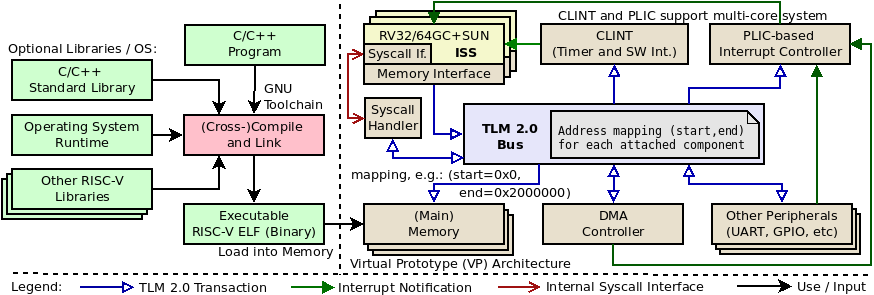Ecosystem Microcontroller
The Ecosystem microcontroller is a PULPissimo-based microcontroller featuring the following Scale4Edge ecosystem IPs:
- A RISC-V TGC processor core
- The AI hardware accelerator UltraTrail
- A phase-locked loop (PLL)
Due to the high configurability of the individual components, the platform can be quickly and easily adapted to specific applications. A specialized ecosystem microcontroller was taped-out in 22nm FDSOI technology as a demonstrator for an audio event detection use-case provided by the project partner Bosch.
Verification IP
An RTL processor implementation can be verified using our co-simulation approaches, which compares the implementation with a functional reference model. As a functional reference model, an instruction set simulator (ISS) that is part of the open-source RISC-V VP can be used. Our cross-level processor verification approach generates endless instruction streams and tightly integrates the ISS with the RTL core with the aid of in-memory communication. The setup allows restriction-free instruction generation, enabling a comprehensive testing approach.
SymEx-VP
SymEx-VP focuses explicitly on testing software for constrained embedded devices (e.g. as used in the Internet of Things). This software often interacts very closely with low-level hardware peripherals and in order to support these interactions, during simulation-based software testing, SymEx-VP supports SystemC peripheral models. SystemC is a C++ class library for modeling hardware peripherals.
Fault Effect Simulation and Analysis for RISC-V (FEAR-V)
FEAR-V is a fast scalable simulation and analysis framework for RISC-V architectures based on QEMU. The generation, simulation, and analysis can be scaled by ISA configuration as well as n-bit permanent and transient faults. The fault injection covers GPR, CSR, instruction, and memory analysis.
The source code of FEAR-V is freely available with all its components and has been published under https://github.com/hni-sct/fear-v.
On Chip Debug Hardware
Infineon implements for its evaluation platform in alignment with Partner Lauterbach specific Hardware Components for On-Chip-Debug. The Hardware acts as Evaluation Vehicle for the Lauterbach On Chip Debug solution.
The Infineon Solution will be productized with its chips. It is therefore no tool or IP but part of semiconductor products.
Extensible Compiler (X-LLVM, Seal5)
The Extensible Compiler provides an LLVM-based toolchain to develop C/C++/Assembly programs for RISC-V. It is designed to easily accommodate custom extensions to the RISC-V ISA by supporting the Scale4Edge developed CoreDSL for describing ISA extensions.
Apache License 2.0
A permissive license whose main conditions require preservation of copyright and license notices. Contributors provide an express grant of patent rights. Licensed works, modifications, and larger works may be distributed under different terms and without source code.
aiT and StackAnalyzer for RISC-V
aiT automatically computes safe bounds for the worst-case execution time of tasks in binary executables, taking into account the cache and pipeline behavior of the processor in question.
StackAnalyzer automatically determines the worst-case stack usage of the tasks in embedded applications. It directly analyzes binary executables and considers all possible execution scenarios.
This distribution of aiT and StackAnalyzer can be used for evaluation and research within the Scale4Edge project, but not for commercial purposes (see also the license information in the installation packages). Evaluation licenses and commercial licenses can be obtained from AbsInt.
TGC-VP
Based on years of experience developing and integrating SystemC based virtual platforms in the industry, MINRES has created DBT-RISE (Dynamic Binary Translation Re-targetable Instruction Set Simulator), a versatile environment to rapidly implement ISS of any architecture. DBT-RISE serves as basis for the implementation of the TGC (The Good Core) ISS (TGC-VP).
TGC-VP provides the following features:
Apache License 2.0
TGC Cores
The Good Folk Series is a highly flexible, scalable and configurable RISC-V based core family developed by MINRES. The standard cores can easily be tailored to specific application requirements using CoreDSL.
It is technology independent, ensures integrity and targets low power edge computing applications. The comprehensive SDK and concise documentation makes it accessible to small and medium companies.
Send an email eyck@minres.com
RISC-V VP
An extensible and configurable RISC-V based Virtual Prototype (VP) implemented in SystemC TLM. The feature set includes support for the RV32GC and RV64GC ISA, privilege levels (M,S,U), virtual memory, SW debug via Eclipse, a HiFive1 configuration and several operating systems including Linux. At UB the RISC-V VP serves as platform for several different research directions (visit https://agra.informatik.uni-bremen.de/projects/risc-v/ for further information and the most recent updates).
MIT

